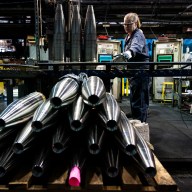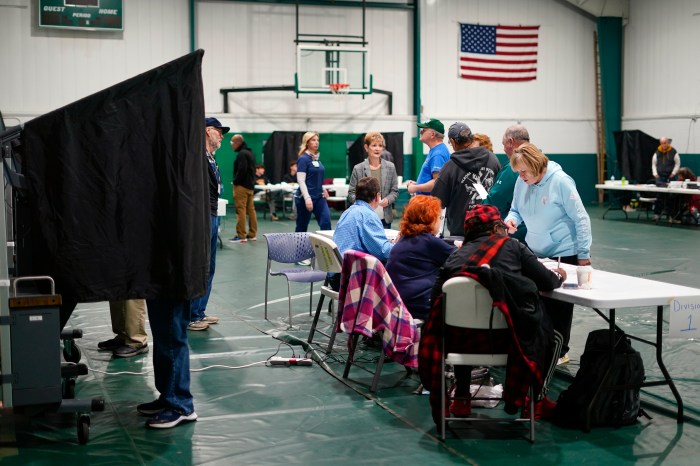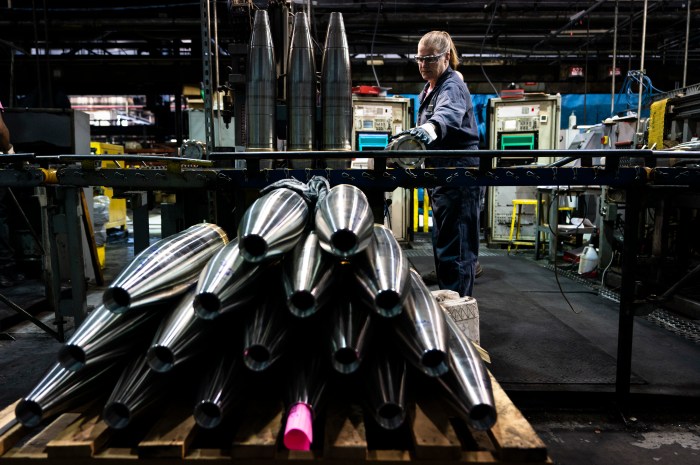WASHINGTON – The man who waged a decade-long campaign to alert regulators to problems in the operations of fallen money manager Bernard Madoff told Congress Wednesday that he had feared for his physical safety.
Harry Markopolos also assailed the Securities and Exchange Commission in his first appearance before lawmakers. The SEC failed to act despite receiving credible allegations of fraud from Markopolos about Madoff’s operations over a decade.
Because of the agency’s inaction, “I became fearful for the safety of my family,” Markopolos said at the hearing of a House Financial Services subcommittee.
“The SEC is … captive to the industry it regulates and is afraid” to bring big cases against prominent individuals, Markopolos asserted. The agency “roars like a lion and bites like a flea” and “is busy protecting the big financial predators from investors,” he said.
He spoke as several top-level SEC officials, including the agency’s enforcement director, sat three rows back in the packed hearing room, awaiting their turn to testify before the panel.
While the SEC is incompetent, the securities industry’s self-policing organization, the Financial Industry Regulatory Authority, is “very corrupt,” Markopolos charged. That organization was headed until December by Mary Schapiro, President Barack Obama’s new SEC chief.
The SEC has been sustaining volleys of criticism from lawmakers and investor advocates over its failure to discover Madoff’s alleged $50 billion fraud, which could be the biggest Ponzi scheme ever, despite the credible allegations brought to it over years. Against the backdrop of the worst financial crisis since the 1930s, the SEC is being accused of further eroding investor confidence and lawmakers of both parties are calling for a shake-up of the agency.
Madoff, a prominent Wall Street figure, was arrested in December after allegedly confessing to bilking investors in what the authorities say was a giant Ponzi scheme, possibly the largest ever. His repeated warnings to SEC staff that Madoff was running a massive pyramid scheme have cast Markopolos as an unheeded prophet in the scandal.
“The SEC was never capable of catching Mr. Madoff. He could have gone to $100 billion” without being discovered, Markopolos testified. “It took me about five minutes to figure out he was a fraud.”
Markopolos, a former securities industry executive and fraud investigator, brought his allegations to the SEC about improprieties in Madoff’s business starting in 2000 after determining there was no way Madoff could have been making the consistent returns he claimed using the trading strategy he touted to prospective investors.
Markopolos and his team of four investigators fruitlessly pursued the quest through this decade with agency staff from Boston to New York to Washington, raising 29 specific red flags regarding Madoff’s operations. But the SEC never acted.
Now thousands of victims who lost money investing in Madoff’s fund, which was separate from his securities brokerage business, have been identified. Among them are ordinary people and Hollywood celebrities – as well as big hedge funds, international banks and charities in the U.S., Europe and Asia. Life savings have evaporated, foundations have been wiped out and at least one investor apparently was pushed to commit suicide.
Markopolos disclosed that he anonymously conveyed a package of documents on Madoff to former New York attorney general Eliot Spitzer, but noted Spitzer took no action. Spitzer’s family trust was among the victims that lost money investing with Madoff.
Markopolos also suggested that senior editors at The Wall Street Journal may have prevented a reporter from pursuing leads he provided because the newspaper “respected and feared” Madoff.
Madoff, who was at one point chairman of the Nasdaq Stock Market and sat on SEC advisory committees, was “one of the most powerful men on Wall Street and in a position to easily end our careers or worse,” Markopolos said.
Markopolos recommended ways to revamp the SEC, including replacing its senior staff and establishing a central office to receive complaints from whistleblowers.
In December, Christopher Cox, then the SEC chairman, pinned the blame on the agency’s career staff for the failure over a decade to detect what Madoff was doing. He ordered the SEC’s inspector general, H. David Kotz, to determine what went wrong. Kotz has expanded his inquiry to examine the operations of the divisions led by Linda Thomsen, who has been the enforcement chief since mid-2005, and Lori Richards, who has held that position since mid-1995.
Thomsen and Richards defended their actions at a Senate hearing last week over the SEC’s failure to uncover Madoff’s alleged fraud scheme. Members of the Senate Banking Committee were scarcely satisfied with explanations given by the two officials and by Stephen Luparello, the interim chief executive of the brokerage industry’s self-policing organization.
Schapiro has said that because Madoff carried out the scheme through his investment business and FINRA was empowered to inspect only the brokerage operation, it wasn’t possible for the organization to discover it.


















